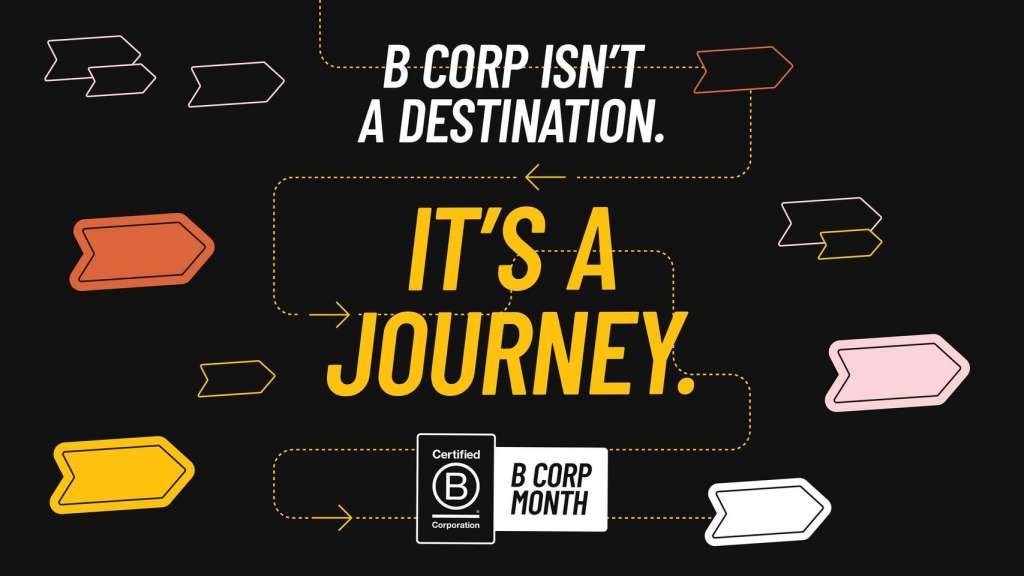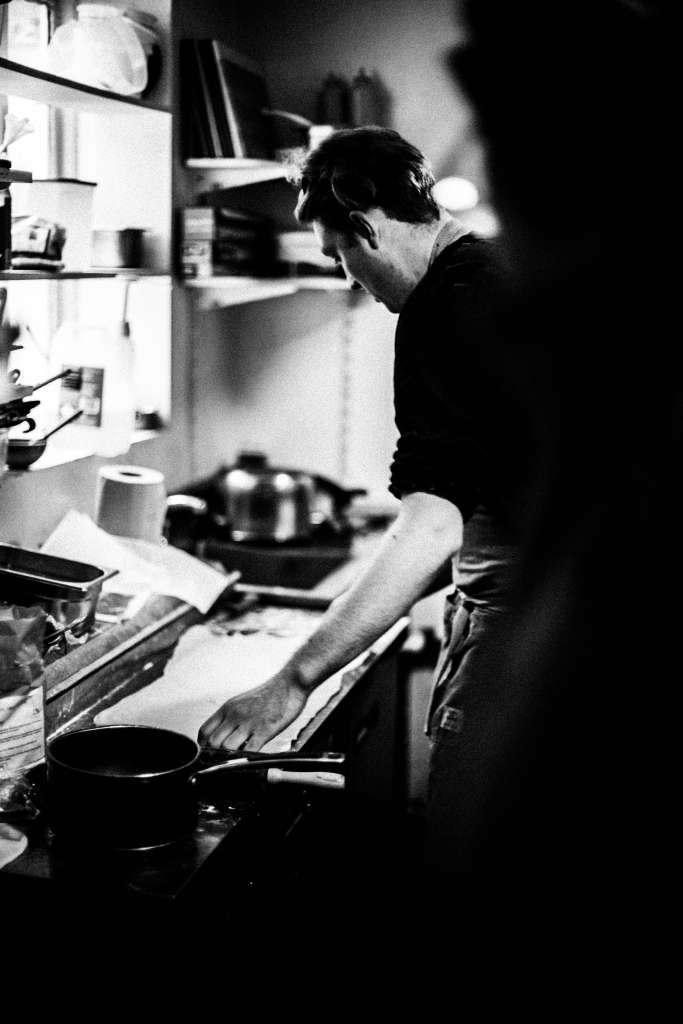Member only content
Savour is proudly brought to you by

-
Checking it Twice – Health and Safety Considerations for your Work Function
-
Why the hospitality industry supports a return to the office
-
Surviving Financial Strain: Restructuring Strategies for NZ Hospitality Employers
-
Rent Reviews Unveiled: The Ultimate Guide for Hospitality Tenants
-
The Vital Role of Reputation Management in the Hospitality Industry
-
Covering Your Bases: A Comprehensive Guide to Business Insurance in New Zealand
-
Understanding Trial Periods

Savour
The Magazine of the Restaurant Association of New Zealand
How B Corp could boost the Aotearoa restaurant industry
1 Apr 24
Could the B Corp movement build a bigger, brighter, and better restaurant industry for Aotearoa New Zealand? Is kai that’s kinder the way of the future? Would more customers rather spend money at ethical eateries? Much evidence points to ‘yes!’

What if the restaurant industry had a tool that could boost profits, find and keep the best staff, engage workers, attract more customers, build healthier supply chains, and unlock financing when needed?
There is such a tool and it’s called B Corp.
What’s B Corp? It’s a global movement of 8500 companies (and counting) that’s aiming to transform the way the world does business. For a company to become a B Corp, it must be assessed by B Lab, a non-profit organisation which audits its ethical standards and commitment to bring benefit to its workers, customers, community, and the planet.
The organisation was founded in 2006 with the aim of inspiring people to use their businesses as a force for good. B Corp companies are required to re-certify as a B Corp every three years.
WHY B CORP?
To understand the exponential growth of the B Corp movement in the last few years, it’s helpful to zoom out and take a macro view of global trends and pressures. First, climate collapse. It’s the biggest existential threat of our time and has primarily been driven by the actions of businesses operating on an outdated and woefully short-sighted ‘profit at all cost’ mentality.

The restaurant and food service industry is no exception. A significant player in this existential drama with myriad issues, including the systemised mass cruelty of industrial animal agriculture to the relentless pressure on farmers to provide more for less, to child slaves forced to work crops, to insectageddon and bee colony collapse from rampant pesticide usage, over-fishing, soils devoid of nutrients, as well as Big Food Inc feeding the masses with ever-cheaper ingredients, like the high fructose corn syrup that replaced sugar, despite knowing these Frankenfoods cause disease and obesity. And let’s not forget the massive issue of food waste, single-use packaging and plastics.
From hot-dog and burger trucks to the highest fine dining, selling food has created a supply chain of suffering. There is a lot of room for improvement here.
GLOBAL B CORP RESTAURANTS
That’s the sobering news. Now some good news. Efforts to fix these problems have already started. More and more business owners want to be part of the solution, not the problem, while more customers are demanding more from the businesses they spend with.
Slowly but surely, some restaurant and food service companies around the world are using the B Corp movement as a roadmap for better business.
In the UK, for example, celebrity chef Jamie Oliver has had his chain of franchised restaurants and branded products B Corp Certified. The mission of the group is to halve childhood obesity in the UK. When asked about the B Corp certification process, he said: “It’s f****** hard. It makes the Inland Revenue look like pussycats. They are properly in your laundry drawer, getting into your pants, having a good look.” Also in the UK are London-based chophouse group Blacklock, Hawksmoor, and Big Mamma Group – to name a few.

Over in Denmark, a B Corp Certified sushi chain called Letz Sushi exclusively purchases organic rice and certified seafood. It has 19 restaurants in Copenhagen, Aarhus and the north of Zealand.
In the US, Just Salad is a fast-casual restaurant chain with a mission to make everyday health and sustainability possible. The B Corp brand serves plant-centric meals, salads, wraps, warm bowls, avocado toast, soups and smoothies. Empowering customers to “Eat with Purpose,” Just Salad is home to the world’s largest restaurant reusable program and the first US restaurant chain to carbon label its menu and offer a Climatarian menu category. The company has over 70 locations across New York, New Jersey, Connecticut, Florida, Illinois, Pennsylvania, North Carolina and Dubai.
AOTEAROA AND AUSTRALIA B CORP EATERIES
What’s happening in our region? In Australia, B Corp restaurants include Red Gum BBQ, a large craft beer and Southern-style BBQ joint that’s firmly committed to local and free range and calls itself the home of Aussie low and slow and good business. Another Australian B Corp restaurant is Attica in Victoria. Owned by Ben and Kylie Shewry, the decision to seek B Corp certification was driven by the desire to do better.
“We believe there is no time to waste, and that it’s on all of us, including restaurants, to do better,” says Ben. “Attica is committed to being an ethical, responsible and more sustainable business, not only for our guests but also for our staff, our community and our one shared home – planet Earth. (Sorry, Elon, but I don’t want to live on Mars.)
“As a restaurant, we consider ourselves leaders, and this certification allows us to help set a new standard, far removed from greenwashing.”
Here in Aotearoa New Zealand, there is the Smoko Room, an on-site eatery at Sawmills in Matakana, which is New Zealand’s first B Corp certified brewery. The menu celebrates the local farmers and growers, the ingredients are ethically sourced and seasonal. As well, we have the in-store café at Untouched World in Ōtautahi Christchurch, which also focuses on seasonal, local and free range.
However, there is no stand-alone Kiwi eatery that has become B Corp certified yet so the crown for first New Zealand B Corp restaurant is up for grabs. If you want it, get in quick.
The Restaurant Association has two programmes, Hospocred and Kai Keepers, that could help you along the journey
Hospocred was developed by the Restaurant Association to help members achieve recognition for their business best practices when they are going above and beyond. Being Hospocred approved could be a great first step and possibly used as evidence when applying for B-Corp Status.
Kai Keepers, currently in the pilot stage, is the Restaurant Association’s food waste reduction programme. Being part of Kai Keepers and working on your food waste would be considered when applying for B-Corp certification. Keep an eye out for when Kai Keepers moves on from the pilot stage to a nationwide roll out.
READY TO GET STARTED? FAQs…
Q. How can B Corp Certification help my business?
As leaders in the movement for economic systems change, B Corps reap big benefits. They build trust with consumers, communities, and suppliers; attract and retain employees; and draw mission-aligned investors. B Corps are, by definition, focused on continuous improvement, leading to their long-term resiliency.
Q. Great! How do I get certified?
B Lab, the non-profit organisation that runs B Corp certification, provides a free, online analysis tool called the B Impact Assessment, which serves up questions that explore five main impact areas of a company: workers, customers, environment, governance, and community. As you complete the B Impact Assessment (BIA), you will gain points for your positive impact—for example, from the pay gap between your highest and lowest paid employees, to the number of jobs your company has created in its community, to the availability of maternity leave or paid time off. The maximum number of points is 200, but the minimum score to pass the certification is 80.
Q. How many B Corps in Australia and Aotearoa New Zealand?
About 700 in total, including 150 in Aotearoa New Zealand and more than 500 in Australia. In total, they contribute $20 billion to our region’s economy.
Q. Any other tips for getting certified?
To really boost your chances, hire a B Corp consultant like Tamara Pitelen. It’s a consultant’s job to guide you efficiently through the whole process and make it simpler, quicker and more successful.
 Member only content
Member only content
Savour is proudly brought to you by

-
Checking it Twice – Health and Safety Considerations for your Work Function
-
Why the hospitality industry supports a return to the office
-
Surviving Financial Strain: Restructuring Strategies for NZ Hospitality Employers
-
Rent Reviews Unveiled: The Ultimate Guide for Hospitality Tenants
-
The Vital Role of Reputation Management in the Hospitality Industry
-
Covering Your Bases: A Comprehensive Guide to Business Insurance in New Zealand
-
Understanding Trial Periods